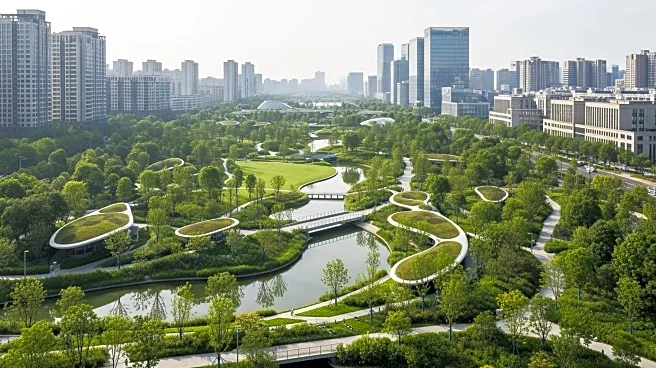What is the story about?
What's Happening?
Chinese landscape architect Kongjian Yu, known for his innovative 'sponge cities' concept, died in a plane crash in Brazil's Mato Grosso do Sul state. The crash occurred near Aquidauana in the Pantanal wetlands, claiming the lives of Yu, the pilot, and two local filmmakers. Yu's 'sponge cities' approach, which uses nature-based solutions to manage water, has been widely adopted in China and other countries, including the U.S. and Russia. Yu was in Brazil for the Sao Paulo International Architecture Biennale and was involved in a documentary project about his work.
Why It's Important?
Yu's death is a significant loss to the field of urban planning and environmental design. His 'sponge cities' concept has influenced urban development worldwide, promoting sustainable and resilient infrastructure. The approach is particularly relevant in the context of climate change, offering solutions for flood management and water conservation. Yu's work has impacted policy and planning in numerous countries, and his passing may affect ongoing and future projects that rely on his expertise and vision.
What's Next?
The immediate aftermath of Yu's death will likely involve tributes and reflections on his contributions to urban planning. Institutions and projects that have adopted his 'sponge cities' concept may reassess their strategies and seek new leadership to continue his legacy. The documentary project he was involved in may gain increased attention, potentially serving as a testament to his life's work and influence. Stakeholders in urban planning and environmental design may convene to discuss the future of sustainable city development in light of his passing.
Beyond the Headlines
Yu's work highlights the intersection of environmental sustainability and urban development, emphasizing the importance of integrating natural processes into city planning. His approach challenges traditional infrastructure models, advocating for a shift towards more ecologically harmonious solutions. The global adoption of his ideas reflects a growing recognition of the need for innovative responses to environmental challenges, and his legacy may inspire further advancements in the field.















